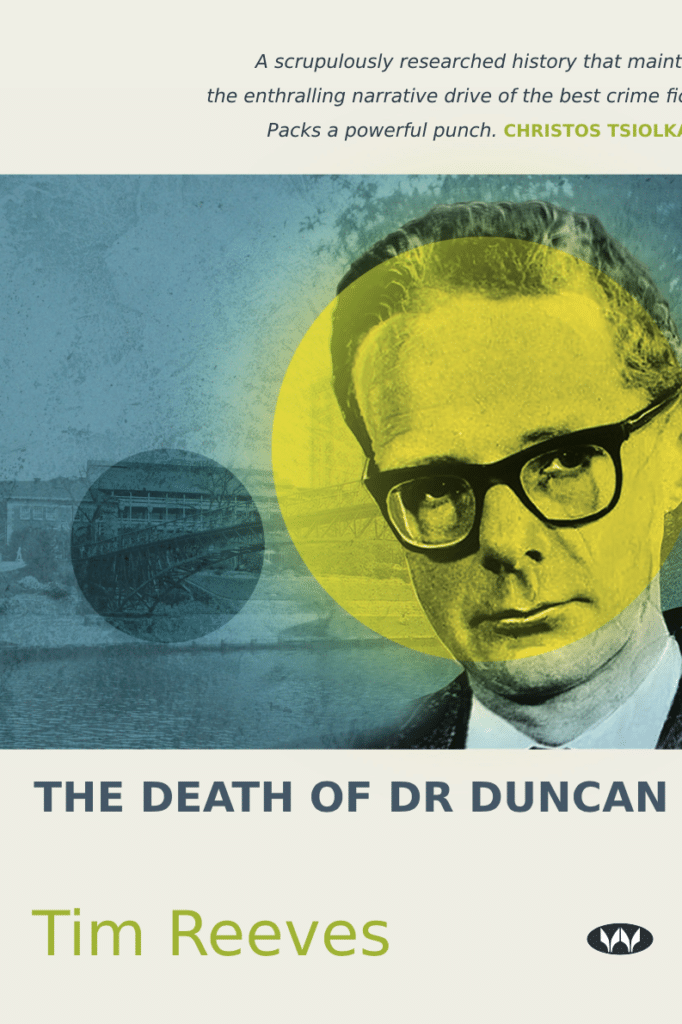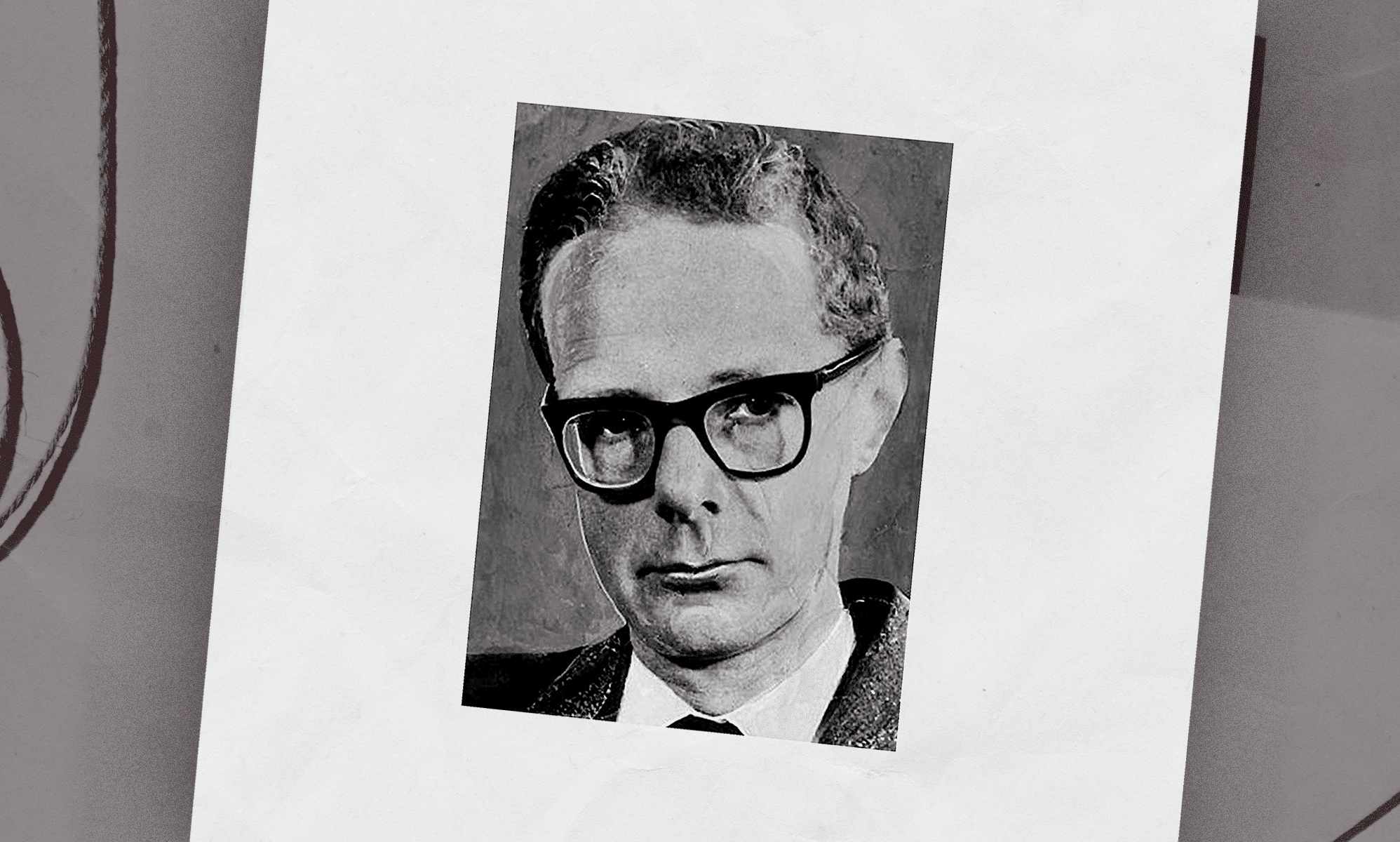On 10 May, 1972, a University of Adelaide law lecturer was thrown by a group of men into the city’s River Torrens at a gay beat and drowned.
After nearly 50 years it remains one of the state’s most notorious unsolved murders. Yet it was the catalyst for the first, though unsuccessful, attempt in Australia to decriminalise male homosexual acts. When reform was finally achieved in 1975, South Australia had legislation which led the nation and the English-speaking world.
Dr George Ian Ogilvie Duncan – known as Ian – had arrived from Britain a mere seven weeks before his killing. Born in London, his family moved to Melbourne, Victoria, when he was seven. He was a brilliant student. His tertiary studies were on the back of firsts in French, Greek and Latin, but he was forced to withdraw when struck down by tuberculosis. After a period in a sanatorium he moved to Britain and was accepted into Cambridge University where he completed his doctorate in law. When he returned to Australia, aged 41, he had been away for 16 years.
It was ironic that he had arrived from Britain, where male homosexual acts had substantively been decriminalised in 1967, to a country where no state or territory had adopted such legislative change. The colonists brought their country’s law with them to Australia in 1788 and so buggery – anal sex – was punishable by death from the beginning. It was not until 1859 that the death penalty was removed in South Australia, although it had never been used. Over time the penalty was reduced but key changes to South Australian law meant that, by 1935, attempting to procure or committing a male homosexual act whether in public or private was outlawed. These were the restrictions in place when Dr Duncan arrived.
The community was appalled by the murder of someone as respected as an academic, especially when rumours started to surface that members of the Vice Squad may be implicated. The story was quickly picked up by the local and then national press. One newspaper pointed to regular police harassment of homosexuals at the Torrens beat involving the use of agents provocateur, and claimed that the killers had escaped in a vehicle that had later been identified as an unmarked police car.
An inquest was called. On the opening day the pathologist who carried out the autopsy said that his examination of Duncan’s body indicated that he had been a passive homosexual. This was because he had a ‘funnel-shaped’ anus. As one journalist remarked: ‘It is chilling to realise that the law can accept the definition of homosexuality in purely pathological terms’.
Three Vice Squad officers refused to answer questions put to them at the inquest on the grounds they could be incriminated. They were suspended from the police force and eventually resigned. The coroner brought down an open finding.
Public concern about the Duncan case was then so great that two detectives from New Scotland Yard were called in to investigate. Their report – which would not be released for another 30 years – described Duncan’s death in extraordinary terms: as “merely a high-spirited frolic which went wrong”. It also revealed that the detectives believed the three Vice Squad officers were guilty, but the Crown Solicitor had decided there was insufficient evidence to prosecute. The two detectives returned to Britain where they were both later jailed on unrelated charges.
The case went cold until 1985 when a former Vice Squad member came forward with claims of a police cover-up. Subsequently, two of the three ex-officers linked to the affair were charged with Duncan’s manslaughter and brought to trial; they were acquitted. The third was found to have no case to answer.

Amid all the commotion soon after the drowning, however, there had been an unexpected development. A member of the state’s Upper House, Murray Hill – who was from the conservative side of politics – revealed that he would prepare a private member’s bill to enact decriminalisation. This was something that not even the progressive Labor Party had been able to achieve.
The bill was based on that introduced into the British parliament in 1967. It would allow consensual sexual acts in private between two men over the age of 21, even though the legal age of adulthood in the state was 18. Male homosexuality was still a major social taboo and many parliamentarians revealed in their speeches their ignorance and prejudices. The (Catholic) attorney general said male homosexual acts were a “perverted activity” and “intrinsically evil”, and he voted for the bill. There were also fears expressed – presciently, as it transpired – that homosexual marriage would follow, though that parliamentarian gave it only 10 years.
The bill was passed within three months, but with a debilitating amendment which meant that a private, consensual homosexual act between two men over the age of 21 would exist only as a defence in court. Homosexual men thus could still be dragged before the courts with the attendant publicity. It was clever but cruel politics from the hard-line conservatives.
In 1973, a newly elected Labor member, Peter Duncan (no relation to Dr Duncan), introduced a completely different and trailblazing bill. This provided for a code of sexual behaviour applicable to all persons regardless of gender or sexual orientation – a first in the English-speaking world. It established a common age of consent of 17, the same penalties for non-consenting acts, and the same restrictions on and penalties for public acts.
It abolished the offences of buggery, gross indecency and soliciting for homosexual purposes, but for the first time recognised male prostitution and homosexual rape. But a Labor member of the Upper House who supported law reform claimed he did not hear the bells calling for a division, and the bill failed by one vote.
An almost identical bill was introduced and passed on 17 September, 1975. As a measure of the advanced nature of the reform, Tasmania was the last jurisdiction in Australia to embrace gay law reform – and it took another 22 years, not until 1997.
The death of Dr Duncan is a case of a life tragically lost, but also of a state and nation ultimately transformed.
Tim Reeves’ book, The Death of Dr Duncan, can be pre-ordered from Book Depository.
